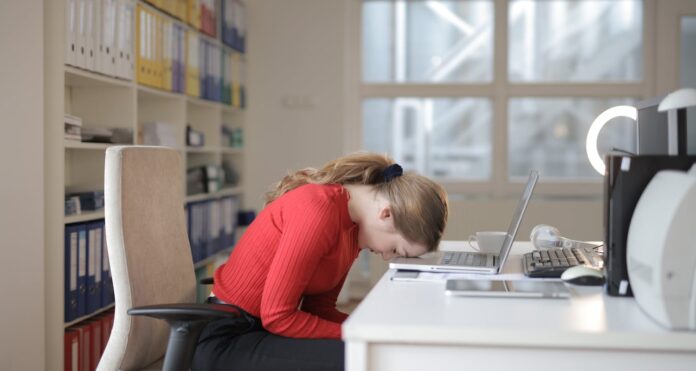Like many other ailments, people are not properly informed about the reality of sleep apnea, especially if they have never dealt with it before. Many people begin to develop this issue later in life and are unaware of how to reduce problems with it- that is where this article comes in with useful tips!
If you suffer from sleep apnea, you should use a Continuous Positive Airway Pressure machine while sleeping. This will help you treat your sleep apnea and get you on the path to having a full nights sleep. This machine uses either a face or nasal mask to pump air while you sleep.
Drop some vices to combat sleep apnea. In particular, alcohol and cigarettes are bad for you. When you drink, your respiratory system is depressed and breathing becomes difficult. Smoking can create carcinogens inside of your lungs, which can damage them later on. Eliminating these habits is going to help alleviate sleep apnea symptoms.
Try playing a wind instrument. Playing the trumpet or a similar musical instrument should help you strengthen your throat and help you control your breathing. Your upper airways should become stronger and remain open throughout the night, which would make the symptoms of sleep apnea disappear or at least reduce them.
Get through sleep apnea by consulting with your practitioner about getting a CPAP machine. You should take the size and potential to make noise into consideration. Some machines can be quite small and be very quiet. Your doctor can help you pick a manufacturer for a good quality machine.
If you have sleep apnea, try sleeping on your side. If you are a back or stomach sleeper, gravity is working against you all night. Your airway is much more likely to collapse if you are facing straight up or down. Sleeping on your side instead makes it much easier for your body to maintain your airway as you sleep.
Do not let sleep apnea ruin your relationship. If your partner has difficulties sleeping next to you because of your snoring or other symptoms linked to sleep apnea, communicate about the problem. be understanding and consider sleeping apart or getting a CPAP machine to reduce your snoring and other symptoms.
Avoid sleeping pills when you find out you realize you are diagnosed with sleep apnea. Sleeping pills relax your palate and the muscles in your throat, which causes you to have even more trouble breathing while you sleep. These pills can lead to a very dangerous situation if your case is bad, especially when tempted to try and get a good night’s sleep.
Try sleeping with nasal strips to open your nasal passageways. If you suffer from sleep apnea, this can offer some relief to your symptoms, especially snoring. When your sleep is less interrupted by waking periods when you cannot breathe, you receive a better night of rest and often see your symptoms disappear.
If you have been diagnosed with sleep apnea, it is important to avoid drinking alcohol. Alcoholic beverages will relax the muscles in your throat, which makes it more likely that they will block your airway during your sleep. At the very least, avoid any alcoholic beverages in the evening before you get ready for bed.
A good way to determine if you are suffering from sleep apnea is by recording yourself when you sleep. You can do either an audio or video recording to catch your sleep patterns and sounds you generate when you are in a deep slumber. These recordings can be quite informative. Try doing them for several nights in a row to get a good range of information.
It’s imperative that you see a doctor for a proper diagnosis when it comes to sleep apnea. But some people find that they can be responsible for their own treatment. Stopping smoking and shedding weight is a great start, especially for anyone dealing with sleep apnea. Other vices to avoid are caffeine, alcohol and large meals right before bedtime.
If you smoke cigarettes and are suffering from sleep apnea, now is the best time to quit this habit. When you smoke, you are increasing the inflammation and the fluid retention in your throat along with your upper airways, and that will contribute greatly to sleep apnea. Once you quit, you should notice your symptoms start to lessen.
Try nasal spray to help alleviate your troubling sleep apnea symptoms. Moistening of the nasal passages can decrease snoring and increase comfort! Use a little about ten minutes prior to going to bed and your sleep should be improved; for extra relief, place a humidifier in the room as well.
Alcohol has also been shown to negatively exacerbate the symptoms of sleep apnea. As a depressant it relaxes your throat muscles, making it easier for your airway to become blocked. By not drinking in the hours leading up to bedtime you give yourself a better chance of keeping your airways open.
If you have sleep apnea and it is within a few hours of bedtime, you should not consume any alcohol. Alcohol can worsen sleep disorders, like sleep apnea. Alcohol is a central nervous system depressant. It worsens sleep apnea and can cause you to become dangerously unresponsive if you stop breathing. This is a potentially fatal combination.
Put your bed on an angle. By slightly raising the head of your bed, you will keep your head higher than the rest of your body while you sleep and improve your sleep apnea symptoms. This can easily be done by placing bricks under the legs of the head of your bed. Ideally you’d like to raise the height no more than six inches.
These tips were written especially for people who suffer from apnea, whether directly or indirectly as a bed partner. While it can be quite difficult to completely remove apnea from your life, there are ways to live with it, and these were touched on in this useful sleep apnea article.



